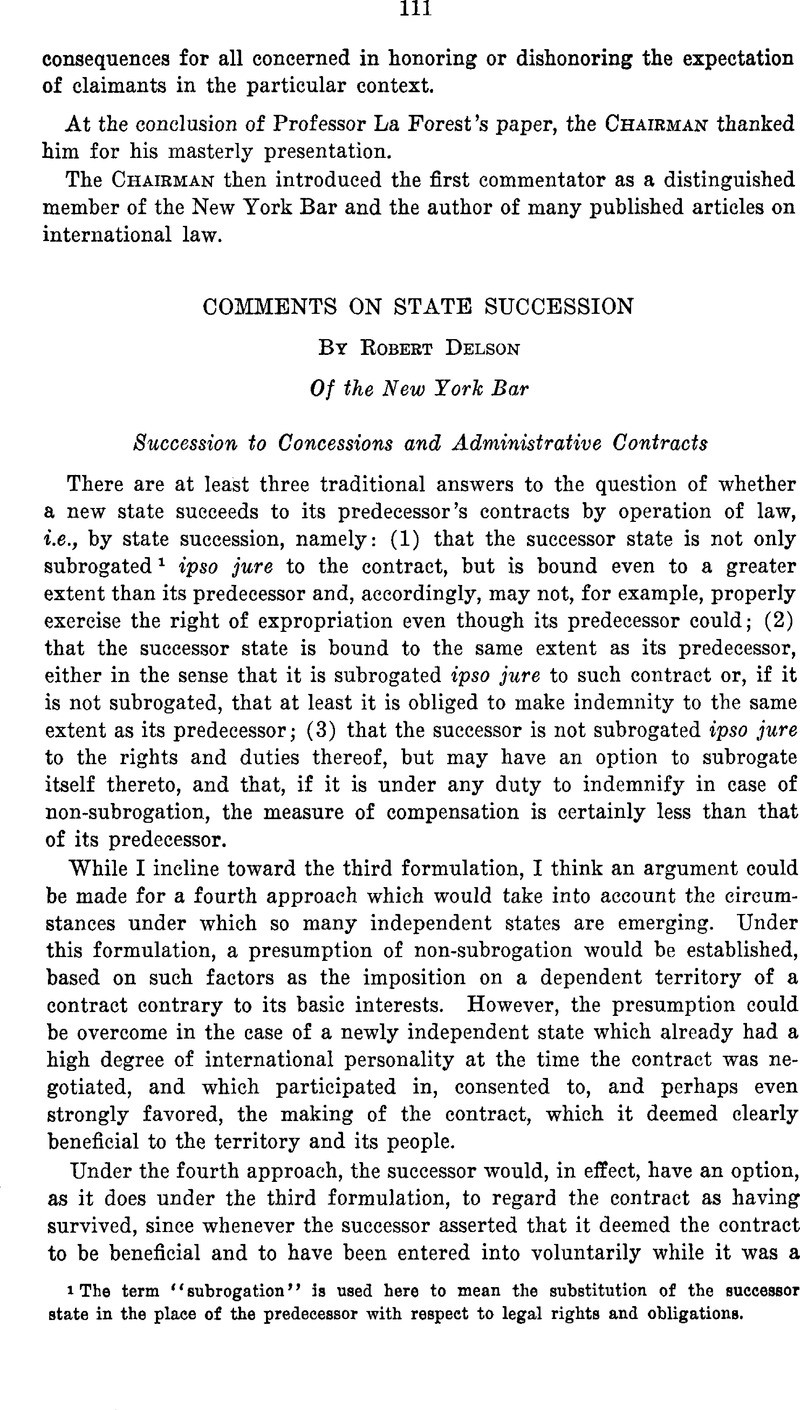No CrossRef data available.
Published online by Cambridge University Press: 27 February 2017

1 The term “subrogation” is used here to mean the substitution of the successor state in the place of the predecessor with respect to legal rights and obligations.
2 Starke, Introduction to International Law 272 (5th ed., 1963).
3 O ‘Connell, 1 International Law 443; Law of State Succession 100, 130, 276-277 (1946). At p. 103 of the latter work O'Connell specifically states that “compensation payable in such cases need not be the maximum.” The view that concessions survive is asserted, inter alia,by Mosler in Wirtschaftskonzessionen bei Anderungen der Staatshoheit (Economic Concessions upon Changes of Sovereignty) (1948).
4 O'Connell, “Independence and Problems of State Succession,” in O'Brien (ed.), The New Nations in International Law 26-30 (1965).
5 O ‘Connell, Law of State Succession 277. O ‘Connell states that contracts of predecessor states automatically terminate but that they are subject to expropriation.
Since a non-existent contract need not be expropriated, it would be more precise to say that it is not the contract which is subject to expropriation but the equitable interest of the private party therein.
6 Loc. cit.,note 4 above, p. 28.
7 The Changing Structure of International Law 207-210 (1964).
8 Spanish Zone of Morocco Claims, Great Britain against Spain, 1923-4 Annual Digest, No. 80.
9 O ‘Connell, Law of State Succession 134.
10 Loc. cit.,note 4 above, p. 27.
11 1 International Law Chiefly as Interpreted and Applied by the United States 429 (2d rev. ed., 1947).
12 See the full discussion of this question in the writer's article, “ I s a taking of an alien's property without compensation or in derogation of the terms of a contract in violation of public International Law?”, Proceedings and Committee Reports of the American Branch of the International Law Association 1959-1960, p. 40 et seq. 13O'Connell, in 38 Brit. Yr. Bk. Int. Law 122 (1962).
13 O ‘ Connell, in 38 Brit. Yr. Bk. Int. Law 122 (1962).
14 ‘’ The Contemporary Practice of the United Kingdom in the Field of International Law—Survey and Comment,” 7 Int. and Comp. L.Q. 514 (1958) (quoted in 2 Whiteman, Digest of International Law 1002).
15 4 Columbia Journal of Transnational Law 23 (1965).
16 O ‘Connell, in 38 Brit. Yr. Bk. Int. Law 155 (1962).
17 1 Oppenheim, International Law 638 (8th ed., 1955).